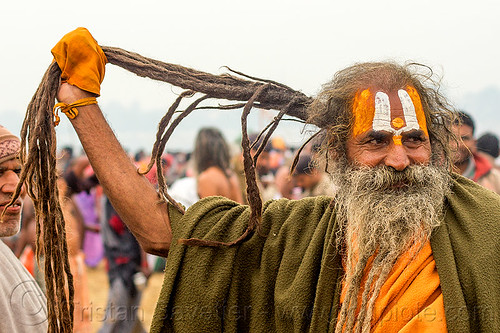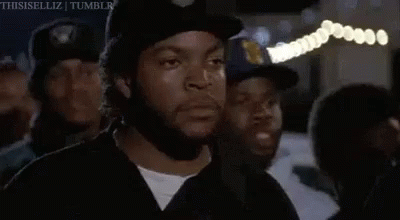Stone Cold
Superstar
These are HIndus in Northern India with dreads. Since when are dreadlocks synonymous with black identity?

Why are you telling me this?

nikka if you’re black and with strong hair your black ass descended from Africa.
These are HIndus in Northern India with dreads. Since when are dreadlocks synonymous with black identity?


nikka if you’re black and with strong hair your black ass descended from Africa.
The heffa has the shots for black immigrants but keep a quite mouth on white people. She pick and chose her target.So basically all the woman said was you were Africans before anything else...that's it. But this weirdo interracial relationship dyke goes on some emotional diatribe because of just that?
The tragedy of race and racism was always there in those American sitcoms I had watched in Kenya, but I was not a black person. I was an African immigrant. And that too was a designation that took some learning.
In Kenya, racism was a concept that existed only in books and never in conversation. Tribalism is what we lived with daily. Our identity was and still is ingrained in ethnicity, not in skin color. It explains why most Africans experience being called “black” or “African” for the first time when they come to America. Neither “black” nor “African” are conscious identity markers for Africans in Africa. One is a Taita, Igbo, Shona, etc. So any jokes or reference to racism in the black-American sitcoms flew right over our heads. The tiny population of Kenyan whites left over from a colonial past are mainly coc00ned in their own enclaves and any effects of post-colonial white supremacy remain very different in an African country where black people run their own political affairs.
New York was overwhelming after my home in Taita, a county a few miles from Mombasa. It was the most-densely peopled city I’d ever been to, and the most intensely lonely. The perks that come with African extended family bonds are profusely underrated. I certainly could never have afforded New York rent, which explains why many African immigrants who land in New York leave soon after for more affordable cities. After I moved to Washington, D.C., I began to fit into my African-in-America identity. D.C. is a slower and more deliberate city than New York. You get to pause and attempt real human connections. I felt more at home there. In D.C., I found kindred spirits in the activists and black intellectuals steeped in the smarts and grits of politics and position.
In Washington, I finally felt I might have a better chance at being stitched into the black identity that I was beginning to find rich and alluring. But I soon found that I couldn’t just claim the Sistah identity. I was treated with respect and regarded as a comrade in art and struggle by other blacks, but without expectation that I would, or could, share the conversations that only people with a shared historical and cultural experience understood.
My place has been as one hovering somewhere around the outer rim of the inner sanctum of blackness. I watch and learn and laugh the loudest when I catch that one joke that almost got away, just to make up for all the others that went right over my head.
Many Africans in America find little value in identifying with Blackhood. They resist being identified with blacks once they become aware of the American caste system that puts melanin-rich humans at the bottom of the social hierarchy. Africans in America have this false hope that being an immigrant saves them from classification on that totem pole. They check the box “Other.” When they make it, most buy homes outside the city, as if American cities and their inner-city component haunts them with a certain stigma of failure.

Fortress 'Black in America': Closed to Africans? - CityLab
the coli tell me one thing, other Africans be saying some other shyt.
but this is just an example of what we often hear.Take one person's testimony as Gospel, brehs
Africans in America find out REAL quick that they're black. In fact, it can be worse if they're Muslim AND black
but this is just an example of what we often hear.
And we've been black on these shores for 400 years, we don't need to be lectured by people that "find out real quick that they're black" about race. Do yall not see how disrespectful that can be?


if we was Africans before we became anything else - then why da fukk u sold us out
that’s like a mother giving her new born away....
then comes back when them nikkaz are grown adults - talking dat fukk shyt u are my child before u became anything else


Ok....and???how many africans come here and shyt on us calling us akata and doing everything they can NOT to be associated with us...
now we all africans???

As much as I want there to be a pan african coalition that shyt starts not with us anymore...
There's more proof that you guys come from African than proof that you didnt come from africa...Also I'm not so sure we were all African before anything else,really no proof that we originated in Africa and in fact my scientific and historical research leads me to believe otherwise. But I am still for unity among all black people,we don't need to be "one tribe" to network and try to help each other prosper just wanting to see our color as a whole in better position. Currently we got it bad globally at the hand of Europeans,but yall would rather fight each other over who gets the best seat next to white zaddy
It's different when you're in a city or a space where it's majority AA. Foreign blacks are forced to assimilate with us to a certain degree. But as the demographics change, they start letting shyt slip.Unless you're from a place with a large foreign black population, I wouldn't expect you to have experienced it. I have, and I'm 'acceptable'.I've never experienced this,I've only heard about it on thecoli and social media actually.

